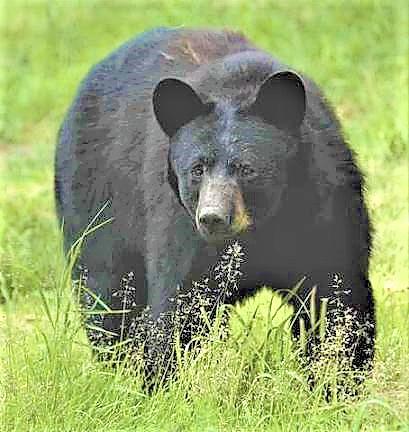New Jersey plans to reinstate bear hunt
Wildlife Management. The New Jersey Fish and Game Club will discuss approval of the state’s Comprehensive Bear Management Policy. A reintroduced bear hunt is expected to be implemented in December to combat the state’s surging black bear population

To protect public safety and support a healthy wildlife population, Gov. Phil Murphy announced that the New Jersey Fish and Game Council will discuss the approval of the State’s Comprehensive Bear Management Policy (CBBMP) and consider amendments to the Game Code at its upcoming meeting on Tuesday, Nov. 15.
As a means of reducing the black bear population and dangerous bear-human interactions, the amendments include measures to reintroduce a regulated black bear hunt beginning in December. The Fish and Game Council will also consider additional limitations to a regulated hunt, including prohibitions on the taking of cubs.
“Since the outset of my Administration, I have promised to ground every difficult decision on the latest science and evidence in order to protect our communities,” said Murphy said. “From the data we have analyzed to the stories we have heard from families across the state, it is clear that New Jersey’s black bear population is growing significantly, and nonlethal bear management strategies alone are not enough to mitigate this trend. Every New Jerseyan deserves to live in communities in which their children, families, and property are protected from harm, and while I committed to ending the bear hunt, the data demands that we act now to prevent tragic bear-human interactions. We must responsibly adapt to the population with carefully regulated and strict bear population management strategies to ensure our communities and families are protected from the growing black bear population.”
The Department of Environmental Protection (DEP) estimates that the black bear population in Morris, Passaic, Sussex, and Warren counties – where the state’s population is centered – has increased, with estimates nearing 3,000 black bears. Meanwhile, reported black bear incidents, including dangerous human-bear interactions, have also increased. Incidents reported to the DEP from January through October of this year have increased by 237 percent compared to the same period in 2021.
“Hunting is an important part of the comprehensive set of practices that the state employs to manage the black bear population and minimize danger to people and property,” said State Sen. Steve Oroho. “By his executive action to allow the bear hunt to recommence, I believe the Governor is recognizing this fact and I applaud his actions. Going forward, I hope the Administration will continue to follow the data and allow the wildlife conservation experts—who best understand the issue—to guide New Jersey’s bear management policies.”
The most concerning of these incidents include: 62 aggressive encounters with humans, 1 human attack, 12 dog attacks, 12 home entries, 15 attempted home entries, 84 instances of property damage exceeding $1,000, and 52 attacks on protected livestock.
Although there have been sightings in all 21 counties, Sussex incurred the most incidents, 701. Living in Sussex County, the three legislators pointed out that bear sightings have become so common that most aren’t officially reported.
“This is something we have been calling on the Governor to do since he signed that executive order in 2018 banning the bear hunt on state property,” Assemblyman Parker Space said. “Bears have no natural predators, and without hunting, the number of bears could continue to multiply unchecked. This was the right call by the Administration—they looked at the data and common sense prevailed.”
The black bear population is projected to grow to more than 4,000 bears in the next two years. In the absence of population control measures, the rate of population growth will compound in future years as a greater number of female bears reproduce, with population reduction standing as the only scientifically sound method of restraining unchecked growth and dispersal.
“When hunting was banned, we saw a significant rise in bear sightings, property damage, crop damage, animal/human interactions and even cases of pets being hurt or killed,” Assemblyman Hal Wirths. “By heeding the advice of wildlife experts, the Administration is putting the public’s safety first where it should be. The wildlife scientists know best in these matters, and I trust they will be instrumental in designing a sustainable bear management policy for the future.”
